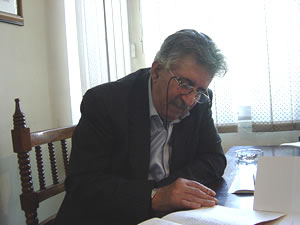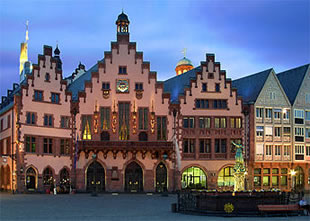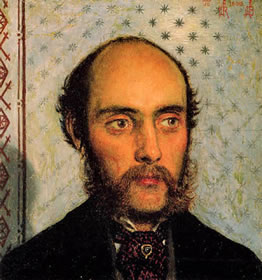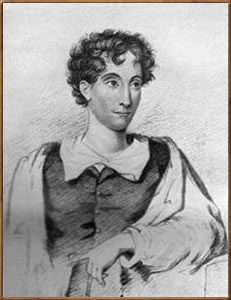|
De Iraanse dichter, schrijver en journalist Manouchehr Atashi werd geboren op 25 september 1931 in Dashtestan, in de provincie Bushehr en groeien op in Teheran, waar hij zijn universitaire graad behaalde en zijn studie en onderkomen verdiende met lesgeven en schrijven. Hij ontving zijn Bachelor diploma in de Engelse literatuur in Teheran. Atashi was nog jong toen zijn gedichten begonnen te verschijnen in de grote Iraanse tijdschriften. Zijn poëzie is de poëzie van de opstandige krijger van de vernederde zuidelijke stammen. Hij nam zijn werk serieus en hoewel gehecht was aan zijn geboorteland en zijn geboorteplaats hebben zijn gedichten een universele strekking.
We Didn't Know
Had we advanced a bit further
Our path would have perhaps led to the sea,
Our sleep would have perhaps turned into dream.
Had we paddled more
Perhaps we would have an agreeable wind,
If we didn't return to the coast,
The water would perhaps have sucked our corpses into the depth.
We were neither a rushing river,
To gallop over, obstacles, sharp ends, plains to... the sea,
Neither were we a moat to serve as watering trough for the mangy wolf...
Nor a mangy wolf which is after its carnal desires,
To submit ..... to the secret moment of a cursed death undisturbed.
We didn't who called us, when and why? whom we called
and why we joined the path
Or why we were delayed.
....
We didn't know who we were and when we existed,
And who has tied this dog inside ourselves to the chain of our vein,
And when.
We don't know who we were and who we are,
Whether our pain was from a wound inflected by a heavenly stone
Or we ourselves are a stinking wound in the body of existence...
...
We didn't know.

Manouchehr Atashi (25 september 1931 - 20 november 2005)
De Duitse dichter, schrijver en literatuurwetenschapper Herbert Heckmann werd geboren op 25 september 1930 in Frankfurt am Main. Zie ook mijn blog van 25 september 2007 en ook mijn blog van 25 september 2008 en ook mijn blog van 25 september 2009.
Uit: Geschichte und Trauerspiel (Over Papinianus van Andreas Gryphius)
Was im Trauerspiel stattfindet, ist die Wiederholung eines Geschehenen, dem in der dramatischen
Fassung angesichts des großen Weltenlaufs die Tendenz aufgeprägt ist, mit verbürgter Datentreue die poetische Eloquenz zu verschärfen. Der Schein geschichtlicher Redlichkeit kann jedoch nicht nur als eine rhetorische Figur angesehen werden, mit vorgetäuschter Wirklichkeit mehr Geltung des Dargestellten zu erheischen.
Denn Geschichte wird hier, ohne daß sie erst im Trauerspiel allegorisch umgedeutet werden muß, nur
als das Spiel der Vergänglichkeit angesehen, aus dem nur die auf das Ewige gegründete Tugend sich der irdischen Fessel entledigen kann. Die durch ein persönliches Erleben bestimmte Natürlichkeit, die jeder allegorischen Dichtung abhold ist, hat erst das Geschichtsverständnis aus seinem kosmologischen Milieu verbannt und ihm eine Eigengesetzlichkeit zugebilligt.
Die dichterische Rhetorik, wie man häufig die barocke Manier kennzeichnet, ist nicht einfach mit der reinen Überredungskunst gleichzusetzen, als ob sie ganz in einer Mission befangen und an feststehende Inhalte gebunden wäre. Freilich setzt die Allegorie die Vermittlung einer gemeinsamen dogmatischen Welt voraus. Sie setzt jedoch die Wirklichkeit nicht um, das hieße ja, daß die Welt ursprünglich als Eigenwert gegeben wäre und erst in einer dichterischen Reflexion allegorisch ausgewertet würde. Geschichte wird immer schon als Allegorie mit dem ganzen Apparat an Requisiten und Kulissen begriffen, die das Ewige aus der Vergänglichkeit hervorheben.
Aber gerade diese Maßnahmen heben die Zeit und den Raum auf. Alles Geschehen verkürzt sich zu einem geschichtslosen Argument, wenn auch eine überschäumende Lebensgier zuweilen das asketische Ideal aufzuheben scheint. Diesem Streben nach echtem Glück jedoch geht jede Historizität ab. Papinian kann die Welt nur dann bestehen, wenn er sich ihr entzieht. Seine historische Größe entspringt einzig dem Reservat seiner Tugend, die in äußerster Aktivität gegenüber jeder Anfeindung ihr ungeschichtliches Ideal in dieser Welt heimisch zu machen versucht: Ihr Ziel ist die Aufhebung der historischen Realität.

Herbert Heckmann (25 september 1930 18 oktober 1999)
Der Römer, Raadhuis in Frankfurt am Main
De Engelse schrijver en criticus William Michael Rossetti werd geboren in Londen op 25 september 1829. Zie ook mijn blog van 25 september 2009.
Uit: Life Of John Keats
John Keats was born at the Moorfields place of business on the 31st of October 1795. This date of birth is established by the register of baptisms at St. Botolphs, Bishopsgate: the date usually assigned, the 29th of October, appears to be inaccurate, though Keats himself, and others of the family, believed in it. There were three other children of the marriageor four if we reckon a a son who died in infancy: George, Thomas, and lastly Fanny, born in March 1803. An anecdote is told of John when in the fifth year of his age, purporting to show forth the depth of his childish affection for his mother. It is said that she then lay seriously ill; and John stood sentinel at her chamber-door, holding an old sword which he had picked up about the premises, and he remained there for hours to prevent her being disturbed. One may fear, however, that this anecdote has taken an ideal colouring through the lens of a partial biographer. The painter Benjamin Robert Haydonwho, as we shall see in the sequel, was extremely well acquainted with John Keats, and who heard the story from his brother Thomasrecords it thus: He was, when an infant, a most violent and ungovernable child. At five years of age or thereabouts he once got hold of a naked sword, and, shutting the door, swore nobody should go out. His mother wanted to do so; but he threatened her so furiously she began to cry, and was obliged to wait till somebody, through the window, saw her position, and came to her rescue. It can scarcely be supposed that there were two different occasions when the quinquennial John Keats superintended his mother and her belongings with a naked swordonce in ardent and self-oblivious[14] affection, and once in petulant and froward excitement.

William Michael Rossetti (25 september 1829 - 5 februari 1919)
Portret door Ford Madox Brown, 1856
De Ierse schrijver Charles Robert Maturin werd geboren in Dublin op 25 september 1782. Charles Maturin stamde af van een familie van Hugenoten die hun toevlucht hadden gezocht in Ierland. Hij bezocht Trinity College en werd kort daarna tot geestelijke gewijd. Maturin schreef drie toneelstukken, alle tragedies, waarvan er slechts een een echt succes werd: Bertram (1815) werd met succes opgevoerd in het Koninklijk Theater Drury Lane in Londen. Zijn andere stukken, Manuel (1817) en Fredolfo (1819) deden het minder goed. Zijn horror-romans konden rekenen op meer bijval. Zijn eerste boek, The Fatal Vengeance, dateert uit 1807. Dit werd gevolgd door The Wild Irish Boy (1808), The Milesian Chief (1811) en Women, or Pour et Contre (1818). Zijn bekendste en nog altijd gelezen werk verscheen in 1820 onder de titel Melmoth the Wanderer en wordt gezien als een goed voorbeeld, en een van de laatste, van het destijds in de mode zijnde horrorgenre. In 1824 verscheen nog de roman The Albigenses. Maturins werk wordt ook wel tot de Gothic literatuur gerekend.
Uit: Melmoth the Wanderer
John Melmoth, student at Trinity College, Dublin, having journeyed to County Wicklow for attendance at the deathbed of his miserly uncle, finds the old man, even in his last moments, tortured by avarice, and by suspicion of all around him. He whispers to John:
"I want a glass of wine, it would keep me alive for some hours, but there is not one I can trust to get it for me,they'd steal a bottle, and ruin me." John was greatly shocked. "Sir, for God's sake, let ME get a glass of wine for you." "Do you know where?" said the old man, with an expression in his face John could not understand. "No, Sir; you know I have been rather a stranger here, Sir." "Take this key," said old Melmoth, after a violent spasm; "take this key, there is wine in that closet,Madeira. I always told them there was nothing there, but they did not believe me, or I should not have been robbed as I have been. At one time I said it was whisky, and then I fared worse than ever, for they drank twice as much of it."
John took the key from his uncle's hand; the dying man pressed it as he did so, and John, interpreting this as a mark of kindness, returned the pressure. He was undeceived by the whisper that followed,"John, my lad, don't drink any of that wine while you are there." "Good God!" said John, indignantly throwing the key on the bed; then, recollecting that the miserable being before him was no object of resentment, he gave the promise required, and entered the closet, which no foot but that of old Melmoth had entered for nearly sixty years. He had some difficulty in finding out the wine, and indeed stayed long enough to justify his uncle's suspicions,but his mind was agitated, and his hand unsteady. He could not but remark his uncle's extraordinary look, that had the ghastliness of fear superadded to that of death, as he gave him permission to enter his closet. He could not but see the looks of horror which the women exchanged as he approached it. And, finally, when he was in it, his memory was malicious enough to suggest some faint traces of a story, too horrible for imagination, connected with it. He remembered in one moment most distinctly, that no one but his uncle had ever been known to enter it for many years.

Charles Robert Maturin (25 september 1782 30 oktober 1824)
25-09-2010 om 19:41
geschreven door Romenu 
Tags:Manouchehr Atashi, Herbert Heckmann, William Michael Rossetti, Charles Robert Maturin, Romenu
|

